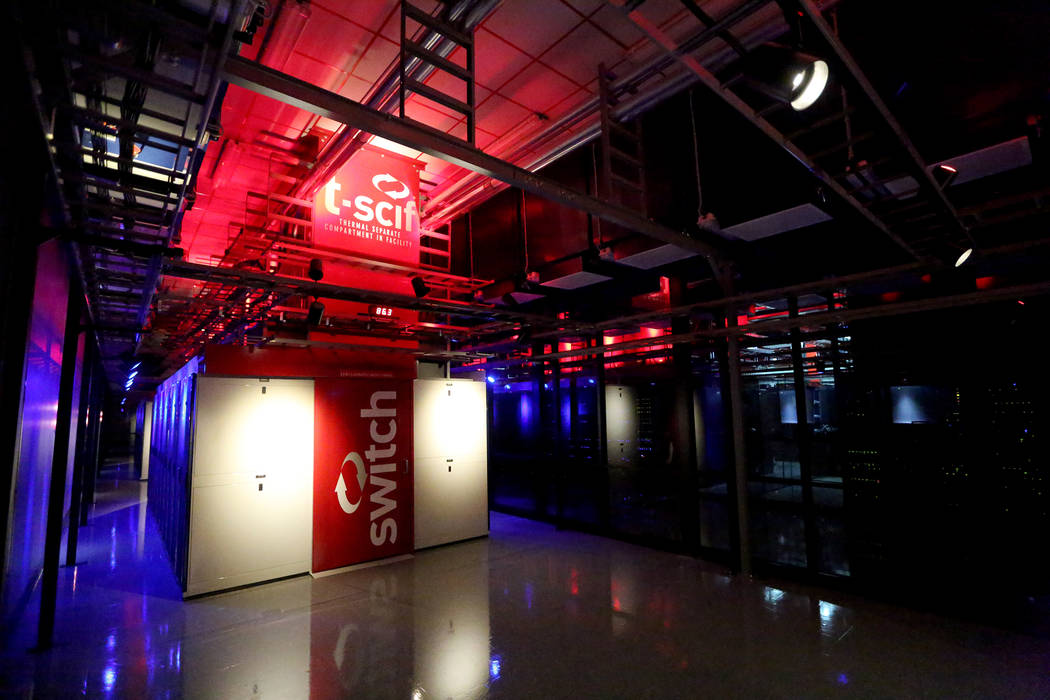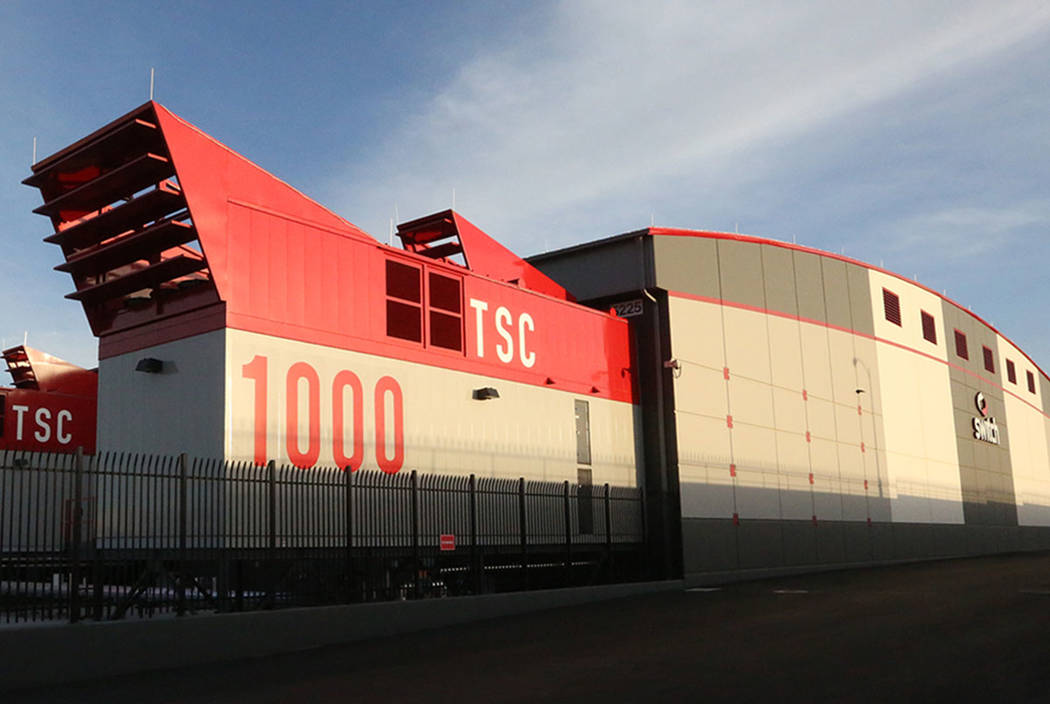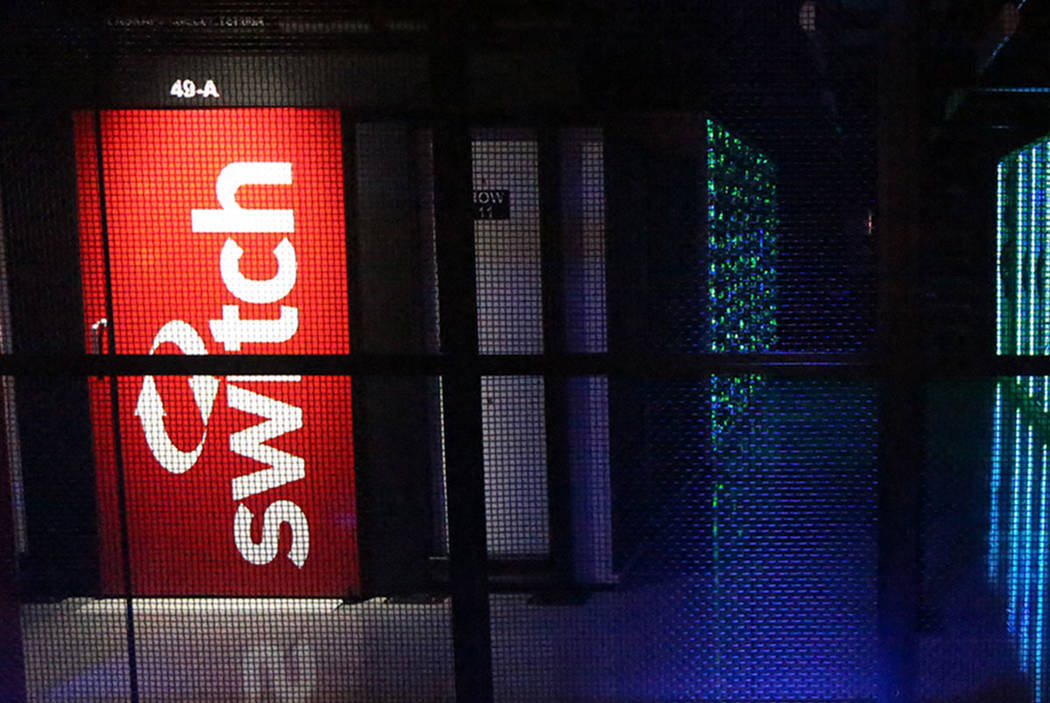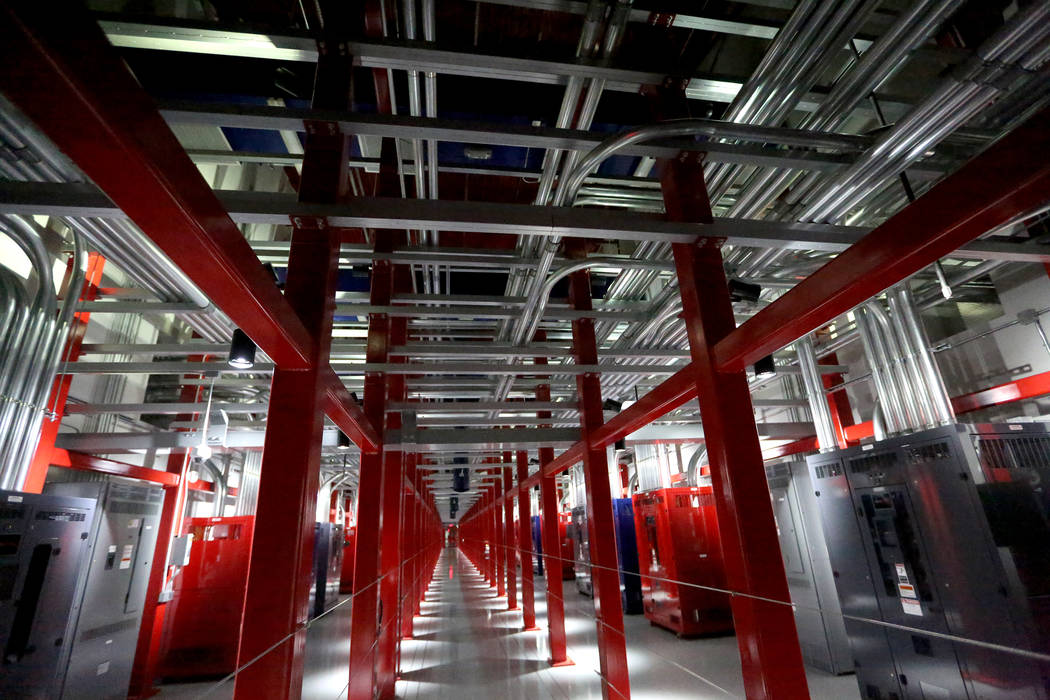PUC says it should regulate Switch
Las Vegas data center company Switch does more than just house servers; the Nevada Public Utilities Commission staff argues it also acts as a public utility.
If Switch is determined to be operating as a utility, the company would be regulated by the PUC. Much like NV Energy and Southwest Gas Corp., Switch would be subject to investigations and rulemaking and would have to receive approval before any rate changes.
A statement from Switch to the Review-Journal said the company believes the PUC staff “is incorrectly trying to apply 19th century monopoly regulation to one of the most competitive industries in the 21st century.”
The commission staff said in filings that Switch is re-selling electricity at a marked-up price,and believes the company’s customers deserve protection through a regulatory agency.
Switch pushed back against the staff’s position in a statement to the Review-Journal Friday but did not address its pricing.
Power rates
Switch was founded in 2000, and has data centers in Las Vegas, Reno and Grand Rapids, Michigan. It is also constructing a campus in Atlanta, Georgia, slated to open later this year. Clients include Amazon, Zappos, Marvel and more.
On March 22, the PUC staff filed a petition that questioned whether Switch operates as a public utility as defined by state law. The question was spurred when the commission staff found Switch was charging Southwest Gas $.09 per kilowatt-hour for power consumption and $.06 per kilowatt-hour for cooling equipment during a review of Southwest Gas records.
According to the commission staff, Switch is acting as a public utility by using its facilities to deliver electricity to its customers to consume power and cool equipment and charging “at a rate that is based on their consumption.”
Documents in the PUC filing show Switch’s power rates are included as recurring monthly charges. The cost of electricity is not included in the rent cost.
“Switch is delivering electricity to its customers and charging customers for the consumption of such electricity, often at a marked-up price,” according to commission staff.
Staff said Switch appears to be charging its customers for electricity at a rate higher than what it pays to obtain, and above the rate NV Energy charges its commercial customers.
“Switch’s customers are not being protected as intended by the Legislature with respect to the rates they are being charged,” the filing reads. “It is the staff’s understanding and belief that Switch is making a profit off of the electricity that it is re-selling its customers.”
Switch’s statement called the PUC staff’s petition “anti-consumer action,” and said no other state treats a data center as a public utility.
“Switch is operating in the same manner today as it was in 2016 when the PUC approved Switch’s (departure) from NV Energy,” Switch said in its statement.
A spokesperson for the PUC said the commission does not comment on ongoing proceedings.
Lack of oversight
In 2016, the Public Utilities Commission approved Switch’s request to leave NV Energy and obtain power from an alternative provider, Morgan Stanley. Switch is one of six companies that have officially left NV Energy since 2005.
The statement from Switch said its use of renewable energy has promoted “economic diversification statewide” through investments in the state, and argued the commission staff’s actions “will halt the massive economic development efforts that are currently taking place in Nevada and keep businesses and Nevadans trapped in the same old way of doing things.”
The PUC filings said it has a duty to supervise and regulate utilities for the public interest, and said Switch’s services don’t operate under any rules or regulations that would provide protection to customers. The PUC doesn’t regulate the company because it left NV Energy, and Morgan Stanley, Switch’s alternative provider, doesn’t count the company’s customers as its own.
Kevin O’Donnell, a financial analyst with North Carolina-based Nova Energy Consultants, said if the PUC decides that Switch is operating as a public utility, the business would not necessarily be harmed.
The easiest way for Switch to avoid PUC regulation would be to reorganize its cost structure, O’Donnell said.
“They could’ve avoided it to begin with if they had figured out cost on an annual basis and just built it into a monthly fee,” he said.
Contact Bailey Schulz at bschulz@reviewjournal.com or 702-383-0233. Follow @bailey_schulz on Twitter.
Utility defined
According to state law 704.020, a utility is defined as "any plant or equipment, or any part of a plant or equipment, within this state for the production, delivery or furnishing for or to other persons, including private or municipal corporations, heat, gas, coal slurry, light, power in any form or by any agency, water for business, manufacturing, agricultural or household use, or sewerage service, whether or not within the limits of municipalities."





















